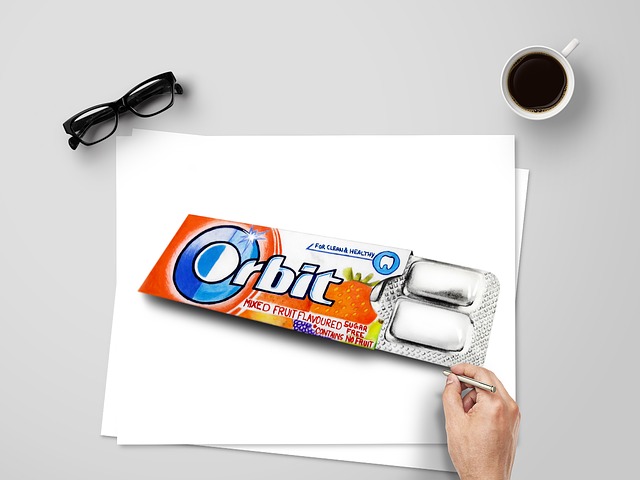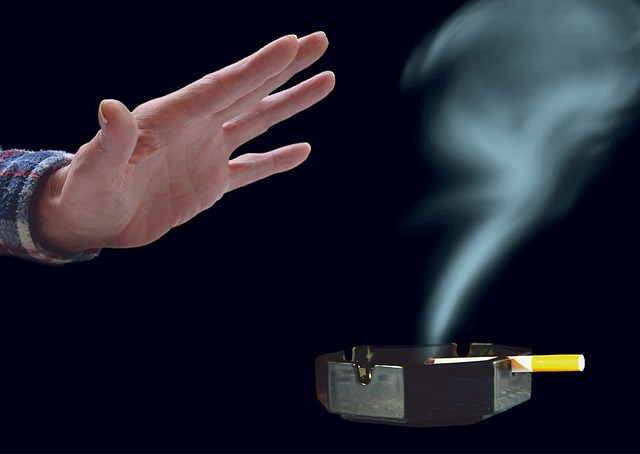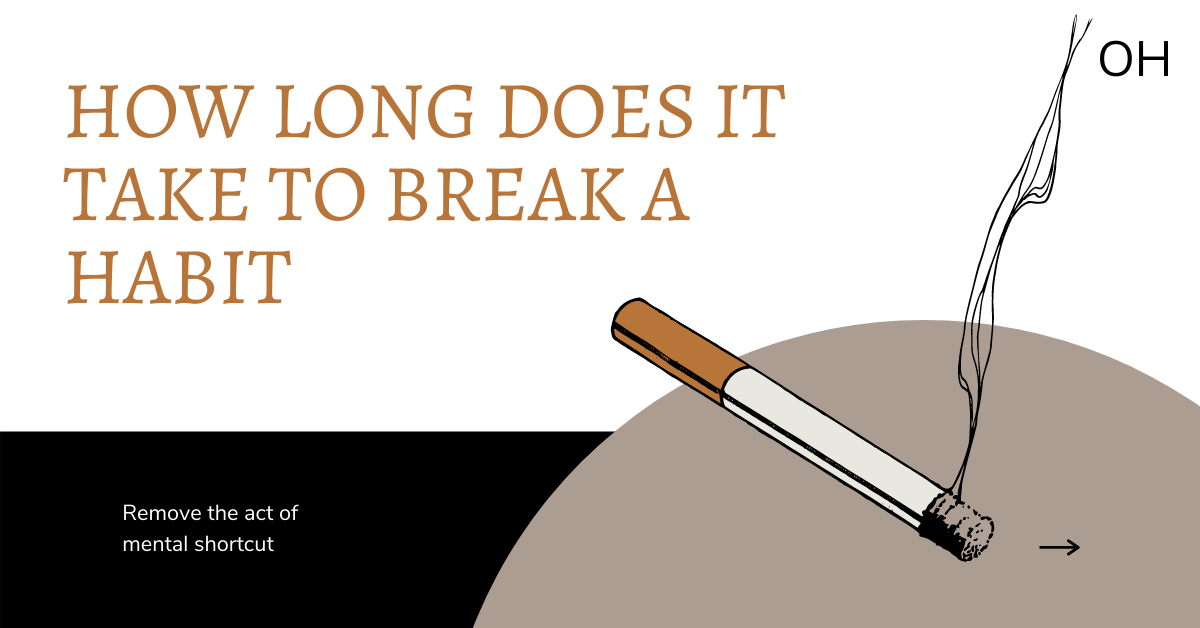In the tumult of life, we often get habitual to doing what we would prefer not to and in the pursuit of getting rid of them, we try an array of methods to break a habit without knowing about their efficiency.
What Are Habits?
Repetition of behavior so often that it becomes intuitive or automatic is defined as a habit. Habits are more like muscle memories that act as a mental shortcut formed through continuous repetition where repetition does not matter.
When Do Habits Become Addictions?

A habit transforms into an addiction when you lose your power to determine your choice of action favoring something that you may or may not be willing to do. This happens because the brain retunes to believe that this habit is an integral part of the body’s survival and sustenance. Some examples to understand this better are feeling the need to smoke a cigarette every now and then to be productive and the lack of it leading to increased stress and anxiety.
Are Habits Breakable? If So, How Long Does It Take To Break One?

21 days is the number you hear related to breaking habits most often, but this a number generalized much more than its scope as it fails to address an individual’s unique neuropeptide connections. Neuropeptides are molecules that influence brain activity and also the circumstance under which habits form. The commonly believed and often promoted the notion that any habit can be broken in 21 days is very close to being a myth because habits formed due to unknown underlying reasons are often extremely hard to break. So, to start, there is no magic number of repetitions to get your habits built or broken to your need.
The 21 days myth originated from the book authored by Maxwell Malts, a cosmetic surgeon by profession. Science, on the other hand, suggests that it takes far much longer to build habits.
A study conducted in 2009 found that instead of a fixed number, it took anywhere between 18 days to a whopping 254 days to change habits. The study involved participants in inculcating a healthy exercise, drinking or eating habit of their choosing into their lives. The average of the statistics came out to be 66 days for the time participants need to repeatedly perform a task to turn it into a habit. Inability to keep up a repetition did not hinder the habit development process, but the pace of development was much faster in consistent repetitions.
Breaking a habit is not a linear process – there will be relapses and starting from zero again, but consistency is the key.
Addictive Habits and Their Solutions

Smoking is most commonly associated with addictive habits. One of the easiest methods to break an addictive habit like smoking is replacement habits. Replacement habits are used to replace the previous harmful habits with a less damaging one. For example, eating candy to satisfy the craving to smoke. It can be anything from physical activity to yoga or meditation, to as simple as chewing gum. If there is a routine (like taking a cigarette break after breakfast or lunch) that eventually leads you to smoke or any other harmful habit. Then, try altering the routines to cut the addictive habit out of the picture.
Tips To Break a Habit are :-
1. Understand your cues

Keep a close watch on what triggers your habit and keep a note of it. To explain, let us take an example, after completing every task, or when taking a break. You had developed a habit like a sort of ritual to grab a snack when feeling stressed. The key is to be thoughtful about the cues that trigger it; you can write them down, talk to someone about it or keep them in your mind.
Whenever you find yourself engaged in a habit that you want to get rid of, ask yourself the following questions to get a clearer picture of the situation.
- Where were you when you frequented the habit?
- Who were your company?
- How was your mental well-being at the time?
- What pushed you into that mental state?
- Do you notice a pattern of timings when you engage in the habit within the day?
- What is the frequency with which you engage in the habit?
2. Change your Surroundings

To boost your struggle to quit smoking, it would be a great help when there are no cigarettes in your vicinity. If you have a social circle of smokers, it will help avoid joining when they would probably take a cigarette break.
3. Find an Accountability Partner
Keeping someone informed about the progress of your habit can keep you on track with your goals. People keeping an accountability partner lost more weight compared to those who didn’t, according to a 2018 study.
4. Find a Replacement Habit
If you are suffering from alcoholism and want to break the habit, then swap it with something healthier like kombucha or non-alcoholic cider. Instead of taking a head-on collision with your routine by not drinking at all, you can work around your existing triggers to lead a better and healthier lifestyle.
5. Reward your Hard Work
Rewarding on achieving a milestone will wire your brain to think that a habit is worth remembering. For example, you want to control your smartphone addiction. You can reward yourself for staying away from the screen by giving yourself a treat for your favorite food. This works because your brain connects staying away from your smartphone with something pleasurable, hence improving the chances of breaking the habit.
Ramp Up Your Motivation
Habits like not exercising are best to break when possible. But if you are trying to break a habit just because you think you should, then your driving force might not be enough to keep at it. If exercise isn’t exactly what you would be willing to give your free time to, then the motivation of “just do it!” won’t be enough.
Try looking at the following causes to get a clearer picture of why you want to break a habit:
- To start with, choosing a replacement activity you like. If not then
- Long-term benefits of what you are pursuing
- finding in replacement activity the things that you enjoy
- involving a friend
- using a reminder system or a motivation app
Have a Good Reason Behind the Change
When you think about why you want to break a habit, you should first consider whether you are trying to break a habit because it is wrong or a more potent reason behind the change, which may or may not be related to the habit itself. And to come up with a reason, put your focus on how engaging in that habit has affected your life. What it has taken from your life that you deserve to have and how getting rid of it will get you that and much more.
Let us take an example to elaborate on why is this important.
There is no denying that breaking a habit is complicated and is a constant non-linear struggle to do.
For instance, to stop the habit of waking up late, you decide to go for a workout early morning as a replacement habit of sleep. You are following your decision better than expected until one morning, you wake up to your alarm, but you are sleepy beyond comprehension. And at this moment, you will start convincing yourself that you are already healthy and can afford to continue sleeping.
But if you have made a goal to hit the road running so that you can make it to the local marathon team, then you’ll be much more determined to ditch the blanket and hit the gym.
Set Aside Time to Change
It only in movies that changes happen overnight and let alone the thought of doing it in 21 days. If you are bent upon getting yourself a number that breaks habits, then you shall have it. It is 66 days, but be mature enough to understand. It is the average number of days to break a habit, so the period to break a habit might be different for everyone. Addictions or obsessions take much longer than habits to break.
There are many variables that cause us to make changes at different speeds, the root cause of the habit, the current factors influencing it, the reason you do it now, and your strength to break negative patterns.
Regardless of the time or the trouble it takes, tackling bad habit and making good habit is totally worth it. Bad habits push you into a dark place and keep you from being the best version of yourself. And in the worst cases, your relationship or even your life. Good habits imbue a positive vibe in you and around you. It gives you the courage to take life head-on.
Conclusion

Bad habits have no reason to be kept around because you deserve a healthy life. They weigh you down indefinitely and bring out the worst in you. Struggling to break a habit is normal because it is not a normal process; it has its relapses and rebound, but the key to achieving it is consistency. Your desire to live out your dreams, your ability to form connections, and your health and wellness start with good habits. If you are ready to put in the effort and make the change, you shall have what you want.

